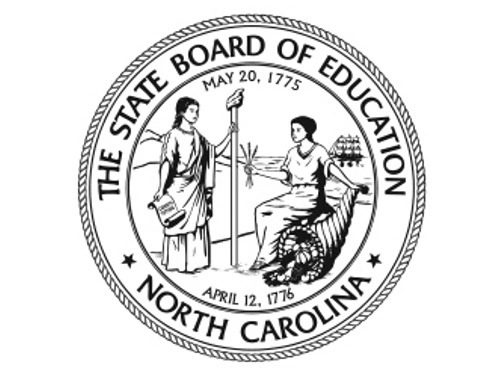
RALEIGH — At its June meeting, the State Board of Education received the annual report given to the General Assembly on the start and end dates for the state’s K-12 schools.
The report showed while most districts began school on Aug. 28, 2022, at least seven district boards of education had voted to start and end school at odds with the state’s calendar law which states school will begin “no earlier than the Monday closest to August 26.”
Under the state’s current calendar law, a district is required to have an end date for school no later than the Friday closest to June 11. The law also has a minimum requirement of 185 days or 1,025 hours of instruction.
Schools exempt from the law include charter schools, lab schools, regional schools and renewal school districts. Also exempt are year-round schools, restart schools and cooperative innovative high schools.
Boards that voted to alter the calendar start date include Cleveland, Gaston, Lee, Rutherford, Stanly, Surry and Yadkin.
Other districts in the report that had start dates other than Aug. 28 included Pitt, Kannapolis City Schools, Cabarrus, Iredell-Statesville, Lincoln, Mount Airy and Polk.
Districts that received calendar waivers included Alleghany, Ashe, Avery, Brunswick, Buncombe, Graham, Haywood, Jackson, Mitchell, Swain, Watauga and Yancey.
There are currently 11 bills, all filed in the House, related to school calendar flexibility that made it through the crossover deadline.
Two bills, House Bill 86 and House Bill 106, deal with calendar flexibility statewide and in various districts respectively. The remaining bills would apply to Carteret, Craven, Granville, Halifax, Harnett, Hoke, Hyde, Johnston, Lee, Pitt, Roanoke and Vance counties.
Most of the calendar flexibility bills include a provision with a first semester end date of Dec. 31 and would require districts to administer first semester exams “prior to the conclusion of that semester.”
The Senate is unlikely to approve such bills based on remarks given by Senate Leader Phil Berger (R-Eden) in an interview with North State Journal earlier this year.
“I don’t think there’s a need to change it,” Berger said. “If I thought there was a chance that changing it would improve outcomes as far as kids are concerned as far as school is concerned. I would certainly consider that.”
Of the complaints involving the calendar law about retaining summer vacation schedules, accommodating community college calendars and making first-semester testing fall before the winter holiday break, Berger said, “All the arguments that are being made now are exactly the same arguments that were being made back then.”
“If you look at how many holidays, workdays, nonschool days that take place between August and December,” said Berger referencing community college course scheduling. “It’s a pretty good number and I refuse to believe that they cannot align the calendar, if, in fact, it is that important as far as community colleges are concerned.”
The travel and tourism industry in the state has consistently pushed back on annual calls to change the calendar law, which was enacted under Democrat majorities in 2004. The groups cite increased revenues going from $14 billion to $26 billion since the law was enacted.




